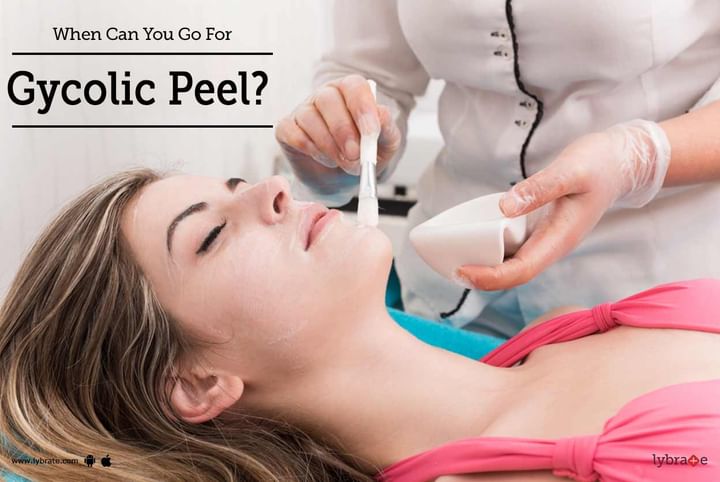When Can You Go For Glycolic Peel?
Glycolic peels can significantly improve the appearance of the skin. This is a type of treatment that involves applying a chemical solution that makes the skin blister followed by peeling it off. The new skin that generates is less wrinkled and smoother. This treatment can successfully reduce lines under the mouth and the eyes, treat acne, improve scars, treat skin damaged by sunburn and wrinkles, improve the look and feel of the skin. It must be noted that the skin becomes very sensitive after a glycolic peel treatment. It, therefore, makes sense to wear sunscreen and refrain from direct exposure to UV rays.
Who is an ideal candidate for a glycolic peel?
Both fair-skin and dark-skinned people are suited for this treatment. The success rate and the effectiveness of this treatment depend on the condition for which a candidate being treated for. People with extremely dark complexion may not be well suited for this treatment.
How to get started?
Before going ahead with the treatment, it makes sense to discuss any underlying condition with the dermatologist. A history of cold sores and scarring should be discussed. If a person is undergoing any medication, it should be informed to the doctor prior to the treatment. A dermatologist often stops other medicine and prescribe skin meds such as Retin-A, Renova etc. to prepare the skin for the treatment. Furthermore, certain antiviral and antibiotic medicine can be prescribed to treat the certain underlying condition before resuming the treatment. An open discussion with the doctor about the depth of the peel is necessary to set the expectation straight.
How is the procedure performed?
A glycolic peel is an outpatient procedure. An overnight stay at the hospital is not necessary. The skin is thoroughly cleaned. The skin is then applied with a solution such as salicylic acid, glycolic acid, trichloroacetic acid, carbolic acid etc to a very limited area of the skin. It results in a controlled wound and the new skin fill up the wound within hours. A burning sensation can be felt for a span of 10 minutes followed by a sensation of stinging. A doctor might prescribe pain medication and suggest cool compressor to reduce the uneasiness.
What to expect after the procedure?
A sunburn-like reaction is witnessed after the procedure. This is followed by scaling that lasts for about a week. Peels can be repeated within weeks to get the exact look a person seeks. The procedure might result in crust, blister, and patches. The area is bandaged after the procedure is performed. Sunlight needs to be strictly avoided since the new skin very fragile and sensitive to the powerful rays of the sun.
In case you have a concern or query you can always consult an expert & get answers to your questions!



+1.svg)
